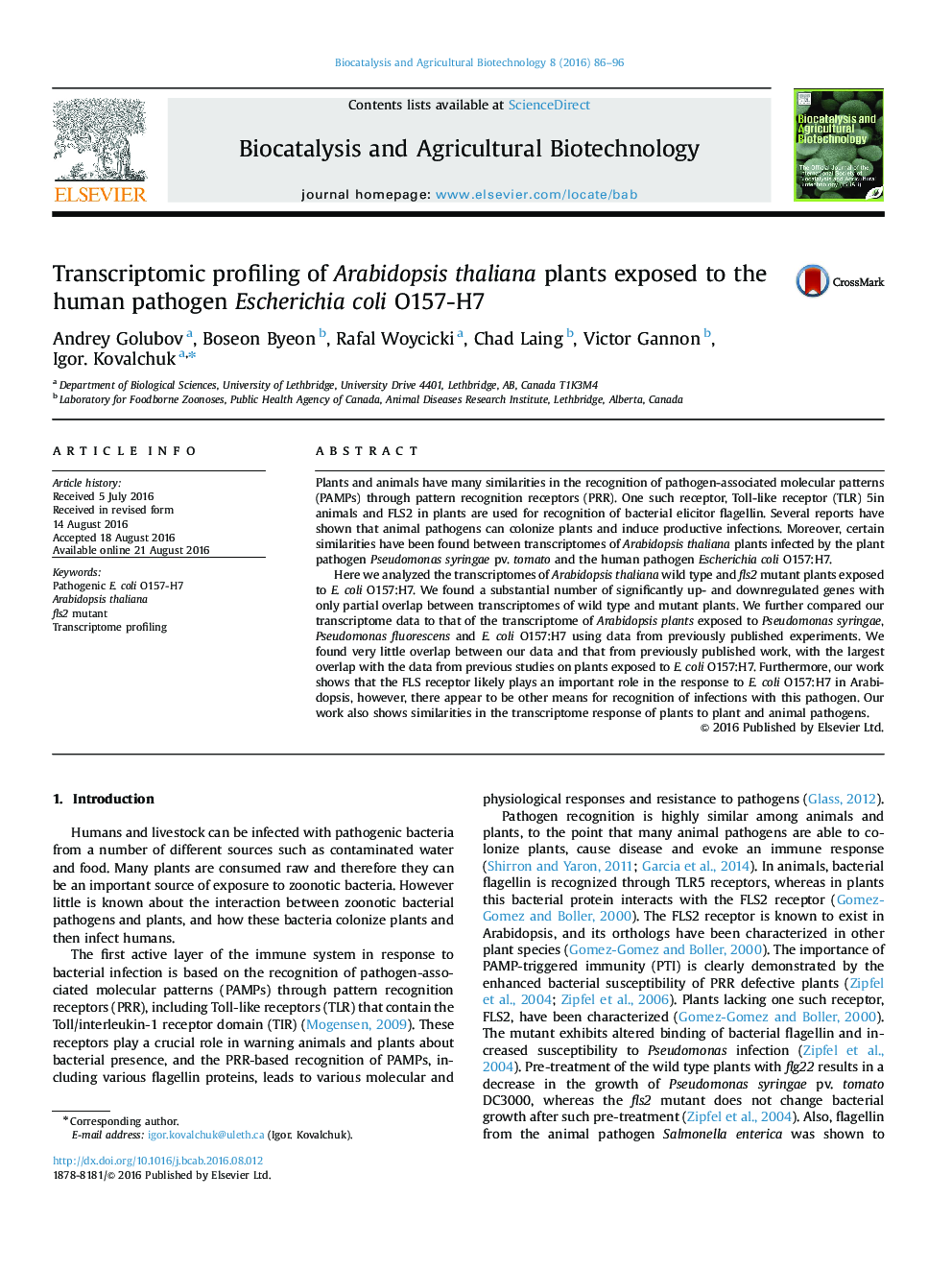| کد مقاله | کد نشریه | سال انتشار | مقاله انگلیسی | نسخه تمام متن |
|---|---|---|---|---|
| 2075273 | 1544904 | 2016 | 11 صفحه PDF | دانلود رایگان |

• Plants and animals respond to pathogens in a similar manner.
• Animal pathogens can interact and even infect plants.
• Inoculation of Arabidopsis thaliana with pathogenic E. coli O157:H7 occurs in FLS-dependent and independent manner.
• Transcriptome response of plants to plant and animal pathogens overlaps.
Plants and animals have many similarities in the recognition of pathogen-associated molecular patterns (PAMPs) through pattern recognition receptors (PRR). One such receptor, Toll-like receptor (TLR) 5in animals and FLS2 in plants are used for recognition of bacterial elicitor flagellin. Several reports have shown that animal pathogens can colonize plants and induce productive infections. Moreover, certain similarities have been found between transcriptomes of Arabidopsis thaliana plants infected by the plant pathogen Pseudomonas syringae pv. tomato and the human pathogen Escherichia coli O157:H7.Here we analyzed the transcriptomes of Arabidopsis thaliana wild type and fls2 mutant plants exposed to E. coli O157:H7. We found a substantial number of significantly up- and downregulated genes with only partial overlap between transcriptomes of wild type and mutant plants. We further compared our transcriptome data to that of the transcriptome of Arabidopsis plants exposed to Pseudomonas syringae, Pseudomonas fluorescens and E. coli O157:H7 using data from previously published experiments. We found very little overlap between our data and that from previously published work, with the largest overlap with the data from previous studies on plants exposed to E. coli O157:H7. Furthermore, our work shows that the FLS receptor likely plays an important role in the response to E. coli O157:H7 in Arabidopsis, however, there appear to be other means for recognition of infections with this pathogen. Our work also shows similarities in the transcriptome response of plants to plant and animal pathogens.
Journal: Biocatalysis and Agricultural Biotechnology - Volume 8, October 2016, Pages 86–96